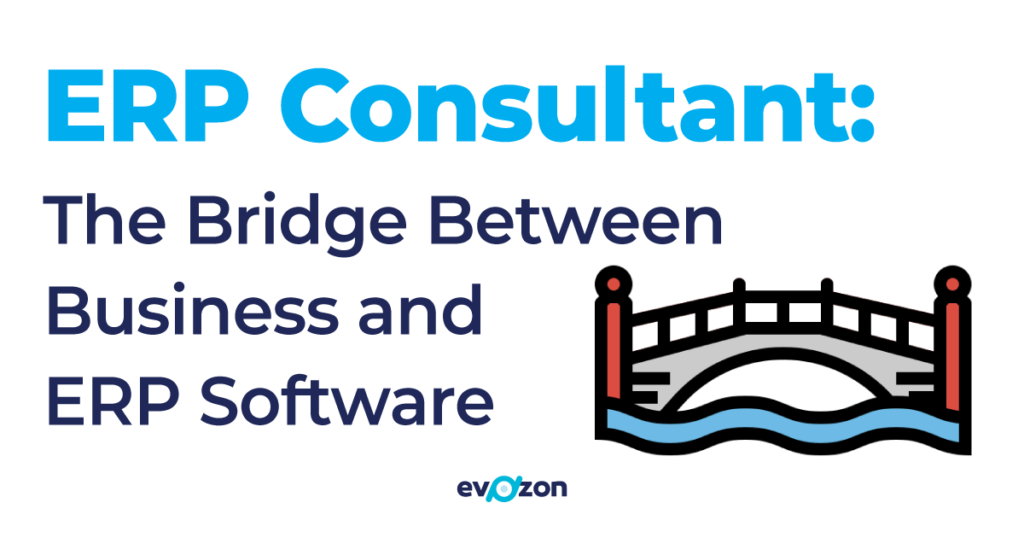Implementing an ERP system is a high-stakes decision for any organization. Whether you’re replacing legacy tools or implementing Microsoft Dynamics for the first time, the process requires deep expertise, strategic planning, and cross-functional alignment.
But here’s the big question: Who should you trust to guide your ERP implementation?
Some businesses choose to work with an independent consultant, valuing personalized attention and agility. Others partner with a certified firm, looking for broader resources and built-in support systems. There’s no one-size-fits-all answer—each option comes with its strengths and trade-offs.
If you’re deploying Dynamics 365, the decision between an independent Microsoft Dynamics ERP consultant and a partner firm can significantly impact your project timeline, cost, risk, and long-term value.
What Does a Microsoft Dynamics ERP Consultant Do?
A Microsoft Dynamics ERP consultant helps businesses implement, customize, and optimize Dynamics 365 ERP solutions—specifically modules like Finance, Supply Chain Management, Project Operations, and more.
Consultants can work independently or as part of a Microsoft Partner organization. Their responsibilities typically include:
● Assessing business requirements
● Designing solution architectures
● Managing configuration and customization
● Training users and supporting go-live
● Advising on post-implementation improvements
The choice between an individual and a firm often comes down to how much support, specialization, and scalability your business requires. Businesses can migrate and modernize their ERP with Dynamics 365.
Independent ERP Consultant: Pros and Cons
Pros
1. Personalized Attention
Independent consultants often take on fewer projects at a time, offering more direct involvement and consistent communication.
2. Lower Cost (Sometimes)
Without overhead expenses tied to a larger organization, independent consultants may offer more competitive pricing.
3. Specialized Expertise
Many independent consultants specialize in a niche area (e.g., finance modules, reporting, integrations), bringing deep technical expertise in specific fields.
4. Agility and Flexibility
They can often pivot quickly or adjust timelines based on client needs without internal approval bottlenecks.
Cons
1. Limited Bandwidth
Solo consultants can only do so much. If your project scope grows or overlaps with other clients, delays can occur.
2. No Backup Team
If the consultant becomes unavailable (illness, emergencies), your project could stall without a contingency plan.
3. Less Coverage Across Modules
A single consultant may not have deep expertise in all D365 ERP areas—especially if your implementation spans finance, supply chain, HR, and manufacturing.
4. Support and Maintenance Gaps
Post-go-live, support needs increase. Independent consultants may not offer 24/7 assistance or dedicated support staff.
Partner Firm: Pros and Cons
Pros
1. End-to-End Delivery Capability
Partner firms bring a full team—functional consultants, developers, project managers, solution architects, and support engineers.
2. Scalability and Redundancy
Firms can scale resources quickly and replace team members if needed without impacting project continuity.
3. Cross-Module Expertise
Firms typically have certified professionals across Finance, Supply Chain, Power Platform, Reporting, and more.
4. Post-Implementation Support
Most partners offer structured post-go-live services like training, bug fixes, system health checks, and SLA-based support.
5. Strategic Guidance
Experienced firms help with long-term planning, licensing, roadmap alignment, and digital transformation strategy—not just technical delivery.
Cons
1. Higher Cost
Partner firms often charge more due to overhead, team size, and scope of services.
2. Less Personalized Attention
You may interact with multiple people across departments rather than one consistent consultant.
3. Bureaucracy and Scope Rigidness
Larger firms may have stricter processes for change requests, project phases, and scope modifications.
When to Choose an Independent Microsoft Dynamics ERP Consultant
An independent Microsoft Dynamics consulting service might be a good fit if:
● You have a small, focused implementation or upgrade project
● You already have an in-house team handling major areas, and just need niche expertise
● You value one-on-one communication and flexibility
● You’re working within a tight budget and are comfortable managing project risks
Example: A mid-sized firm needing help only with D365 Finance module reporting enhancements might benefit from an expert independent consultant.
When to Choose a Microsoft Partner Firm
A Microsoft-certified partner firm is often ideal if:
● Your project is large or spans multiple business units/modules
● You require full-service support from planning through post-go-live
● You want to reduce risk and ensure access to backup resources
● You prefer to work with a team that offers strategic guidance, governance, and compliance support
Example: A multinational company rolling out Dynamics 365 Finance and Supply Chain across multiple countries will benefit from the structure, scale, and specialization of a partner firm.
What to Ask Before Making the Decision
Regardless of your direction, here are key questions to ask during evaluation:
● Are you certified in the modules we’re implementing?
● What industries do you have experience in?
● Can you provide case studies or client references?
● What happens if you’re unavailable during the project?
● What does your post-go-live support model look like?
● Do you help with licensing, upgrades, and long-term planning?
Whether you’re hiring an individual or a firm, the goal is the same: a successful ERP rollout that drives real business value.
Final Thoughts: Choose the Fit That Matches Your Needs
There’s no universal right answer to the independent vs. partner firm debate—it’s all about context. If you need personalized attention for a focused project, an independent Microsoft Dynamics ERP consultant may be your best bet. But if your ERP rollout is complex and long-term, the support structure of a certified partner firm might prove invaluable.
Evaluate your goals, timelines, internal capabilities, and risk tolerance carefully. The success of your Microsoft Dynamics ERP implementation hinges not only on the software, but on the people you choose to guide you through it.



